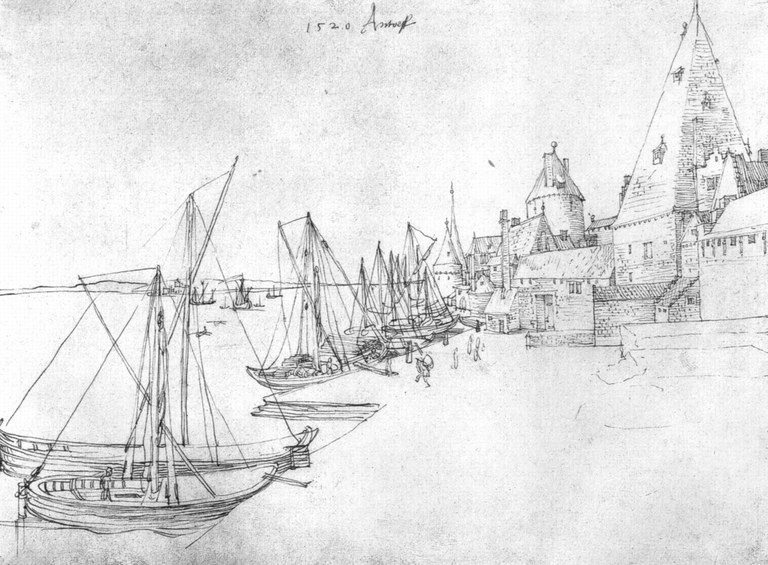Vortrag // Ulinka Rublack: Colonial Dürer: Cloth, Sugar and Aztec Treasures
Termindetails
Wann
von 18:15 bis 19:15
Wo
In 1520, the artist Albrecht Dürer travelled from his land-locked German hometown of Nuremberg to Antwerp, the thriving Atlantic port-city in the Netherlands, where he based himself for a year and kept a diary. This unique record is best known for Dürer´s deep admiration of Aztec artefacts that Cortes had recently brought to Europe in terms of the craft skill embedded in them. Commentary on his Netherlandish diary and the sketchbook he used during the trip has often highlighted Dürer´s more general ethnographic curiosity. This lecture argues that the Antwerp diary tells us above all about the function of art and culture in an age of new Atlantic colonial commerce that reshaped social hierarchies and exchange. My focus is on the networks between people and things which Dürer as an artist became part of. I focus on cloth and sugar because the diary records their frequent exchange for art in Dürer´s circles. These exchanges joined new and old elites who were part of this burgeoning economy of conquest and global expansion through trade, including German new merchant and financial elites such as the Fugger factors, officeholders of the Portuguese king, local state officials in Flanders and Italian silk traders and financiers keen to insert themselves into governmental positions. This means to inscribe Dürer into a new narrative of the German Atlantic´s involvement with colonialism and more broadly to show how art functioned as one important media of building new and transnational economic and political networks among rulers, aristocrats, officials, humanist scholars, financiers and merchants. These communities were held together by their “art-loving” and thus legitimised as aesthetic communities through constant practices of sharing fine art, curiosities, rarities and trade goods as well as eating fine foods. Instead of individuality, then, I highlight the importance of the function of Renaissance culture to facilitate collective taste-making among different groups of elites and its specific historical role as early capitalism thrived on international partnerships among merchants and on the joint involvement of state actors as much as on competition. Dürer´s commentary on Aztec artefacts needs to be placed in a colonial context.

Prof. Dr. Ulinka Rublack, ist Professorin für frühneuzeitliche Geschichte an der Universität Cambridge. Seit 1996 ist sie Fellow am St John´s College und Lehrende an der historischen Fakultät Cambridge. Gastaufenthalt u. a. am Maison des Sciences de l`Homme, Paris, als Descartes Fellow am NIAS, Amsterdam, als Fellow am Wissenschaftskolleg, Berlin, dem Harvard Research Centre for the Renaissance I Tatti, sowie 2025 dem Historischen Kolleg, München. Ulinka Rublack wurde u.a. ausgezeichnet mit: 1996 Prince Consort Medal, 2011 Roland H. Bainton Prize, 2018 Reimar-Lüst-Preis der Humboldt-und Thyssen-Stiftung, 2019 Preis des Historischen Kollegs, München, 2025 Einhard Preis für Biographie, Fellow der British Academy.
